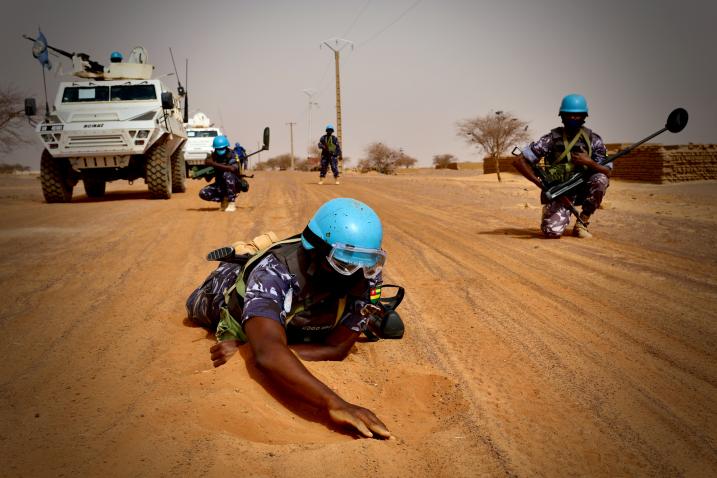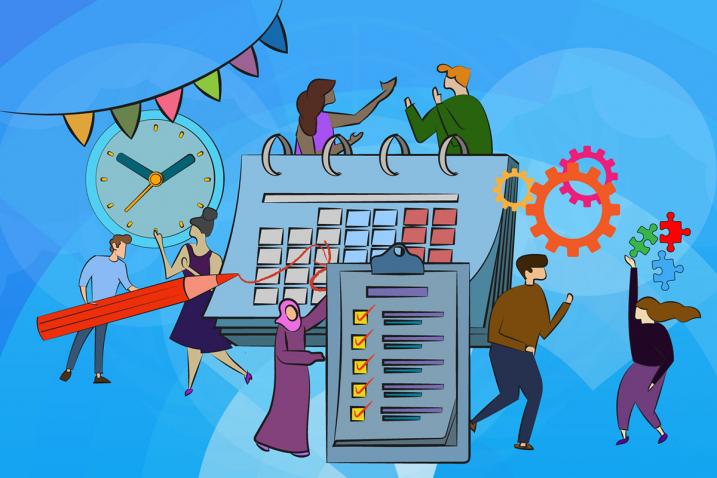This year, we focus on the Power of Partnerships. We know that peace is won when governments and societies join forces to resolve differences through dialogue, build a culture of nonviolence, and protect the most vulnerable.
2022 Theme: People. Peace. Progress. The Power of Partnerships
Media www.rajawalisiber.com – The International Day of United Nations Peacekeepers, 29 May, offers a chance to pay tribute to the uniformed and civilian personnel’s invaluable contribution to the work of the Organization and to honour nearly 4,200 peacekeepers who have lost their lives serving under the UN flag since 1948, including 135 last year.
The theme for this year’s Day is “People. Peace. Progress. The Power of Partnerships.”
Peacekeeping has helped save countless lives and brought peace and stability to many countries over the decades. But UN peacekeeping cannot fully succeed on its own in creating the necessary conditions to end conflict and secure lasting political solutions. It’s partnerships with Member States, civil society, non-governmental organizations, UN agencies and other parties are fundamental to bringing tangible improvements in the lives of ordinary people, in areas such as economic development, the rule of law, women’s rights, human rights, health and education.
The first UN peacekeeping mission was established on 29 May 1948, when the Security Council authorized the deployment of a small number of UN military observers to the Middle East to form the United Nations Truce Supervision Organization (UNTSO) to monitor the Armistice Agreement between Israel and its Arab neighbors.
Since then, more than 1 million women and men have served in 72 UN peacekeeping operations, directly impacting the lives of millions of people and saving countless lives. Today, UN Peacekeeping deploys more than 87,000 military, police and civilian personnel in 12 operations.
To mark the Day at the UN Headquarters in New York on 26 May, the Secretary-General will lay a wreath in honour of all peacekeepers who have lost their lives while serving under the UN flag over the past seven decades. And a virtual ceremony will be held at which the Dag Hammarskjold medal will be awarded posthumously to peacekeepers who lost their lives in 2021. The Military Gender Advocate of the Year award will also be presented at the virtual ceremony.
Did you know
- UN peacekeepers are making a tangible impact on the lives of the communities they serve. They persevere and overcome huge challenges to support people caught up in conflict around the world.
- Peacekeeping has helped save countless lives and brought peace and stability to many countries.
- Today, peacekeeping is as relevant as ever, as we work to protect civilians, build national capacities and institutions, advance political solutions, and build durable peace, recovery and development.
UN Peacekeeping helps countries navigate the difficult path from conflict to peace. We have unique strengths, including legitimacy, burden sharing, and an ability to deploy troops and police from around the world, integrating them with civilian peacekeepers to address a range of mandates set by the UN Security Council and General Assembly.
“To save succeeding generations from the scourge of war” are among the first very words of the UN Charter (in its Preamble), and those words were the main motivation for creating the United Nations, whose founders had lived through the devastation of two world wars by 1945. Since the UN’s creation on 24 October 1945 (the date its Charter came into force), the United Nations has often been called upon to prevent disputes from escalating into war, or to help restore peace following the outbreak of armed conflict, and to promote lasting peace in societies emerging from wars.
International days and weeks are occasions to educate the public on issues of concern, to mobilize political will and resources to address global problems, and to celebrate and reinforce achievements of humanity. The existence of international days predates the establishment of the United Nations, but the UN has embraced them as a powerful advocacy tool. We also mark other UN observances.




